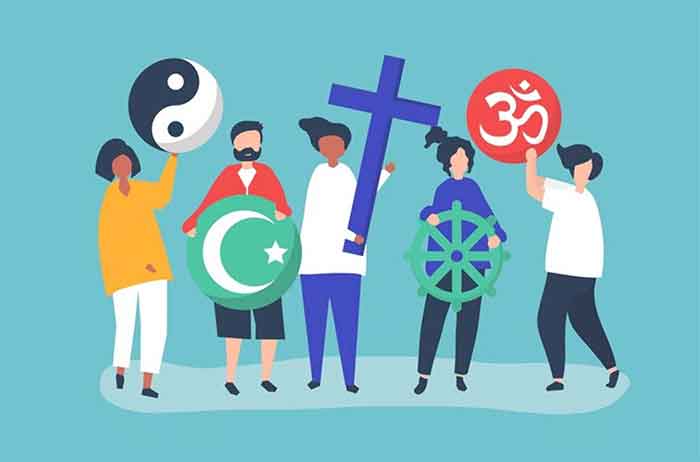
A new freely downloadable book
I would like to announce the publication of a book which discusses religious ethics and cosmology. The book may be downloaded and circulated free of charge from the following link:
https://eacpe.org/content/uploads/2021/09/Who-is-my-Neighbor-by-John-Scales-Avery.pdf
One often hears the question: “Is there a conflict between science and religion?” In my opinion, there are two aspects to religion – ethics and cosmology. Science has little to say about ethics, so here there is hardly any room for conflict.
By contrast, religious cosmologies are ancient legends, formed long before scientific research showed us the almost unimaginably immense scale of the observable universe, its 13.8 billion year history in time, and the 4.543 billion year history of the earth. We now know that humans evolved only an instant ago, on the cosmic time-scale. Can we still believe the entire universe was created by a quasi-human agency, especially for the enjoyment of humans?. Here, in the field of cosmology, science directly contradicts religion. Can we not accept religious ethics – the traditional wisdom of humanity – while at the same time rejecting religious cosmology?
Not only is there little or no conflict between religious ethics and science, there is also broad agreement on ethical principles between the major religions of the world. An interesting Wikipedia article on the Golden Rule points out that it exists in various forms in all the major religions of the world.
The Golden Rule, on which all major religions agree, tells us that we must treat others as we ourselves would wish to be treated. If everyone accepts this, how does it happen that human history contains a seemingly endless series of bloody wars, each more tragic, destructive and horrible than the last? Is there some fault in human nature that leads to tribalism and nationalism?
Chapter 4 of this book is devoted to a discussion of tribalism and nationalism from the standpoint of ethology, the science of inherited behavior in animals and humans. Human emotions were formed when our ancestors were hunter-gatherers, living in small, genetically homogeneous tribes. The tribes competed with each other for territory on the grasslands of Africa, and the tribe, as a whole, either survived or perished. Thus the tribe, rather than the individual, was the unit on which the Darwinian forces of natural selection acted. This evolutionary process has led to the fault in human nature that makes nationalism and war possible.
Fortunately, humans are not doomed to be the slaves of their instincts. These can be overwritten by ethics and by social structures, such as law and governance. Chapter 5 reviews the history of international law, while Chapter 6 discusses the steps needed to strengthen the United Nations so that it can become capable of fulfilling the role intended for it by its founders – eliminating the institution of war.
There is a particularly strong contrast between Christian ethics and the behavior of Christian nations, as is discussed in Chapter 8. Besides the Golden Rule, which is common to all major religions, Christian ethics contain two very important additions: The commandment that we must love and forgive our enemies, and the Parable of the Good Samaritan, which tells us that that our neighbor may belong to another nation or religion or ethnic group, but he or she is still our neighbor and deserves our care and protection. The chapter contrasts these important ethical principles with the atrocities inflicted by Christian Europe and Christian America on the remainder of the world.
Today modern transportation, instantaneous communication, and econonic interdependence have made it clear that nationalism is a dangerous anachronism. Modern war has become prohibitively dangerous. We are also threatened with a climate disaster which we must unite to avoid, and a pandemic which also requires global unity. Thus we urgently need a global ethic, in which narrow loyalties are suplemented or replaced by a higher loyalty to humanity as a whole.
On our small but beautiful earth, made small by technology, made beautiful by nature, there is room for one group only – the family of humankind.
Other books and articles about global problems are on these links
http://eacpe.org/about-john-scales-avery/
https://wsimag.com/authors/716-john-scales-avery
I hope that you will circulate the links in this article to your friends and contacts who might be interested.
John Scales Avery is a theoretical chemist at the University of Copenhagen. He is noted for his books and research publications in quantum chemistry, thermodynamics, evolution, and history of science. His 2003 book Information Theory and Evolution set forth the view that the phenomenon of life, including its origin, evolution, as well as human cultural evolution, has its background situated in the fields of thermodynamics, statistical mechanics, and information theory. Since 1990 he has been the Chairman of the Danish National Group of Pugwash Conferences on Science and World Affairs. Between 2004 and 2015 he also served as Chairman of the Danish Peace Academy. He founded the Journal of Bioenergetics and Biomembranes, and was for many years its Managing Editor. He also served as Technical Advisor to the World Health Organization, Regional Office for Europe (19881997).
http://www.fredsakademiet.dk/ordbog/aord/a220.htm. He can be reached at [email protected]. To know more about his works visit this link. https://www.johnavery.info/


















































